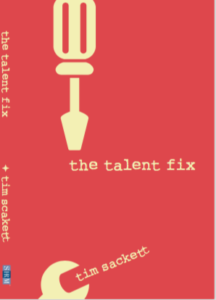If you didn’t know April 10th is national Equal Pay Day!
How are you spending today celebrating this Ummm, well, holiday-ish thingy?
I have yet to see a company do this, but it would be awesome to see them make all the white dudes come to work and everyone else who is affected by pay inequality actually gets the day off, with pay!
I know, you probably clicked to come read this article because you thought I was going to give you some right-winged propaganda about how Pay Inequality wasn’t real and it was just made up by the left! If that was your thought, you really don’t know me!
Pay inequality is real and I know it’s real because I’ve worked two decades in HR and I’ve seen it with my own eyes. I’ve run the compensation reports and sat down with executives to show them the real data we were facing as an organization.
Was it 70 cents on the dollar to men? No, not in my experience, but it was enough to be embarrassing. It was enough to show we had real sexist and racist assholes working for us making pay decisions.
Here’s my take on Pay Equality Day…
We own this as HR. I was once asked to step down and leave a company because I went into the executive boardroom as an HR professional and said, either you pay these women the same as the dudes, or I’ll quit. They took that as my resignation because they were not about to pay the women the same. That’s cowardly leadership, but it proves a point.
We – HR – own this. It’s not hiring managers. It’s not CEOs or CFOs or COOs. It’s you and me.
If HR allows a hiring manager to make an offer to any candidate for less than others are being paid in the same role, and we don’t stop that, we own it!
If you don’t stop it, or you believe you can’t stop it, you can quit and go to work for an organization that respects all their employees. If you don’t, you are now complicit in pay inequality. You are now the problem, not the hiring managers, and not the executives.
Now, should you quit and give an ultimatum like I did? Hell no! I was young and stupid.
What I should have done is approached this with a plan and a solution to fix our problem. If at that point, I was told we didn’t have a problem, or we would not be fixing this problem, then I have some decisions to make. My solution was to change employees salaries now or I’m going to throw a fit. That doesn’t work in the real world of budgets, and stock prices, and, well, life.
It took us a lot of time to get into this position, you don’t get out of it overnight. In hindsight, here’s what I should have done to fix our pay inequality issues:
1. Discover the importance of this issue with the leadership team and our legal team. I can do a lot of things, but if this is considered a non-issue by both my executive team and my legal team, I’m not getting anything done.
2. Stop all new pay equity issues. I might not be able to change the past, immediately, but I can definitely ensure no new issues come in the door!
3. Make a plan, with finance, on how you recommend we solve historical pay equity issues, and request an audience to dual-present this plan on this issue with myself and finance. By doing this, I would have known what we can actually do financially and have the buy-in already from those writing the checks.
4. Discover who my true offenders are, and deal with these folks first. In my experience, pay equity issues rarely are equal across an organization. It’s usually small pockets of hiring managers and locations that are doing bad things. “Well, Tim, we’ve always paid the ‘gals’ a little less because they tend to leave and have babies!” Oh boy! Even after coaching, discipline, etc., I don’t allow these folks to make compensation decisions. They lost this responsibility for a long time.
5. Develop and run quarterly or monthly reporting and ensure your leadership and legal team are aware of your progress.
6. Tell your employees what you’re doing.
Pay equity is an HR issue. HR owns it.
We are now responsible for what happens in our organizations when it comes to compensation because we all have been put on notice. If you don’t take this responsibility then you shouldn’t be in HR.



